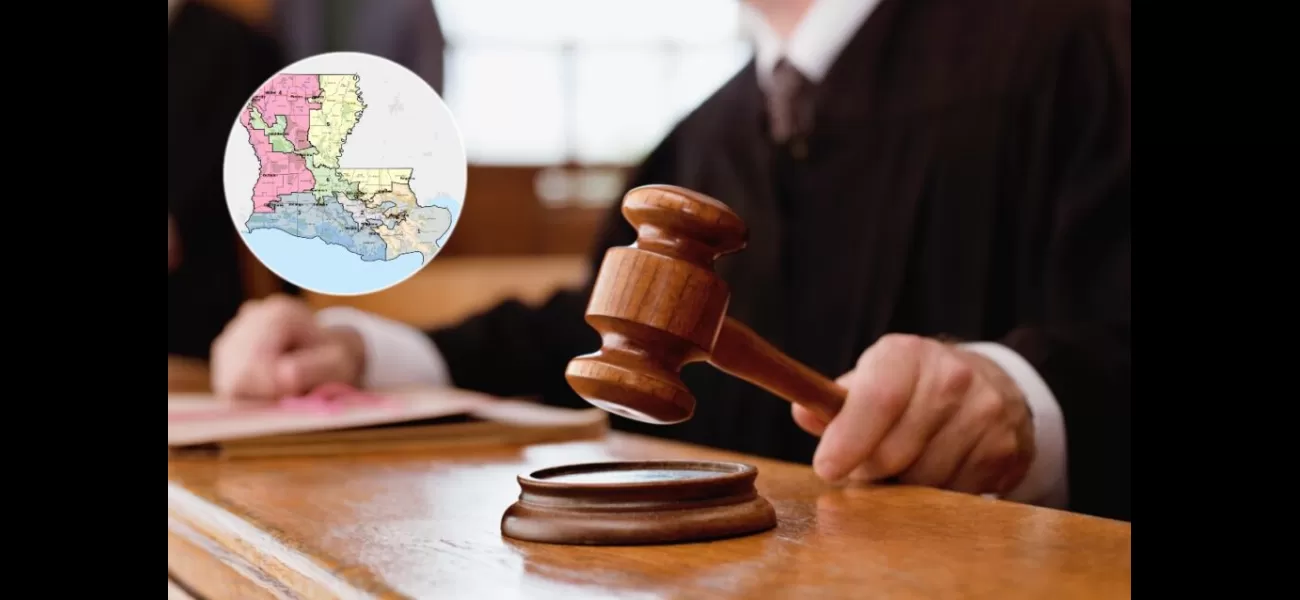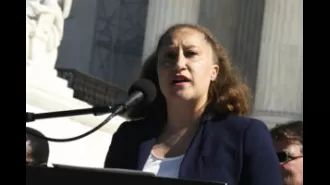Judges reject Louisiana's congressional map, which includes a district with a large black population.
Trump-appointed judges gave the majority ruling.
May 2nd 2024.

A recent decision by a panel of federal judges has caused quite a stir in Louisiana. The judges rejected a newly drawn congressional map, which would have resulted in a second majority-Black district in the state. This ruling, made on April 30, was a 2-1 decision based on the grounds that the new maps were a form of racial gerrymandering, going against the equal protection clause in the U.S. Constitution. The proposed map would have designated the 2nd Congressional District as a majority-Black district and labeled the 6th Congressional District, led by Rep. Garret Graves, as the second one.
The judges, David C. Joseph and Robert R. Summerhays, both appointed by former President Donald Trump, delivered the majority ruling. However, Judge Carl E. Stewart, appointed by former President Bill Clinton, wrote a dissenting opinion. According to NOLA, Stewart argued that the unusual shape of the district was necessary in order to incorporate the dispersed Black population and create a majority-Black district. On the other hand, Joseph and Summerhays believed that the state could have achieved its political goals without resorting to dividing communities based on race.
This ruling came after a lawsuit was filed by 12 Louisiana residents who were not African American. They claimed that the new district divided key communities and was a form of racial gerrymandering. The maps were approved by the Louisiana State Legislature in January 2024 and signed into law by Republican Gov. Jeff Landry. This came after almost two years of debate and disagreement over the state's congressional lines. In 2022, former Democratic Gov. John Bel Edwards vetoed a set of maps, arguing that it violated the Voting Rights Act by only creating one majority-Black district in a state with a one-third Black population. However, the state Legislature eventually overrode the veto.
State Rep. Kyle Green, who is Black, expressed his concerns about the future of the state's congressional map. He pointed out that it was too late for legislators to file new bills for a revised map during the regular session ending on June 3. He questioned what map would be used for upcoming elections and whether the Legislature would have a chance to develop a new plan.
Louisiana's Attorney General Liz Murrill has stated that they will be seeking a review from the U.S. Supreme Court. She believes that the Supreme Court needs to address and clarify the issue of redistricting, as it has become a contentious and complicated matter. The National Democratic Redistricting Committee has expressed disappointment in the ruling and suspects that supporters of the new map will request an emergency order from the Supreme Court to keep the map in place during the appeals process.
The judges, David C. Joseph and Robert R. Summerhays, both appointed by former President Donald Trump, delivered the majority ruling. However, Judge Carl E. Stewart, appointed by former President Bill Clinton, wrote a dissenting opinion. According to NOLA, Stewart argued that the unusual shape of the district was necessary in order to incorporate the dispersed Black population and create a majority-Black district. On the other hand, Joseph and Summerhays believed that the state could have achieved its political goals without resorting to dividing communities based on race.
This ruling came after a lawsuit was filed by 12 Louisiana residents who were not African American. They claimed that the new district divided key communities and was a form of racial gerrymandering. The maps were approved by the Louisiana State Legislature in January 2024 and signed into law by Republican Gov. Jeff Landry. This came after almost two years of debate and disagreement over the state's congressional lines. In 2022, former Democratic Gov. John Bel Edwards vetoed a set of maps, arguing that it violated the Voting Rights Act by only creating one majority-Black district in a state with a one-third Black population. However, the state Legislature eventually overrode the veto.
State Rep. Kyle Green, who is Black, expressed his concerns about the future of the state's congressional map. He pointed out that it was too late for legislators to file new bills for a revised map during the regular session ending on June 3. He questioned what map would be used for upcoming elections and whether the Legislature would have a chance to develop a new plan.
Louisiana's Attorney General Liz Murrill has stated that they will be seeking a review from the U.S. Supreme Court. She believes that the Supreme Court needs to address and clarify the issue of redistricting, as it has become a contentious and complicated matter. The National Democratic Redistricting Committee has expressed disappointment in the ruling and suspects that supporters of the new map will request an emergency order from the Supreme Court to keep the map in place during the appeals process.
[This article has been trending online recently and has been generated with AI. Your feed is customized.]
[Generative AI is experimental.]
0
0
Submit Comment





